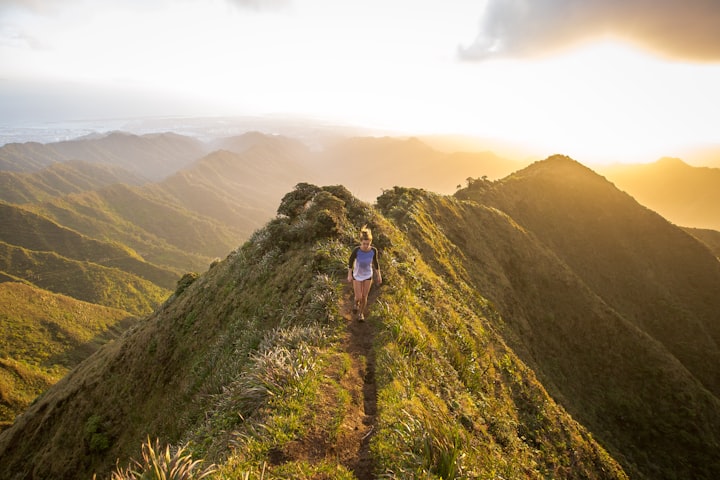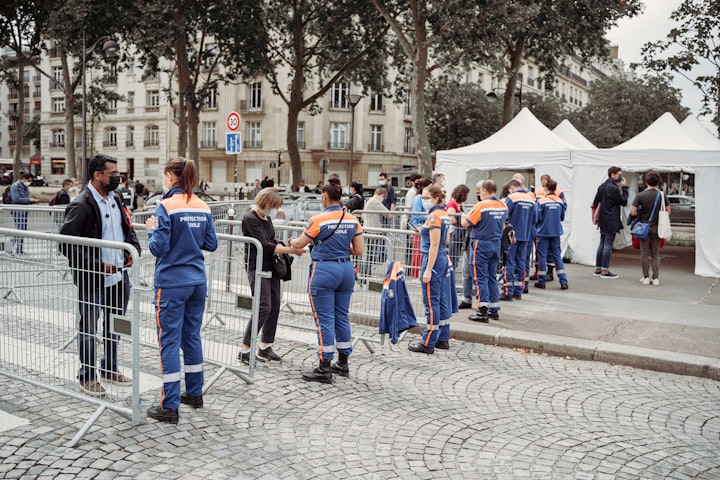


RESEARCH AND RESOURCES ON COOPERATION IN APOCALYPTIC TIMES
How will humanity survive?
Days before the pandemic was declared, an interdisplinary team of scientists, doctors, artists and humanities scholars came together to start a longitudinal study of cooperation and social behavior. On this website we give an overview of our emerging findings and provide links to resources from other teams who are studying cooperation in times of crisis including (but not limited to) to COVID-19 pandemic.
Research
The Cooperation in the Apocalypse research team uses science and scholarship to understand human behavior in times of crisis. Most of the work posted below is based on our longitudinal data collection efforts.

How is the COVID-19 pandemic affecting cooperation?
Did the COVID-19 pandemic bring people together or push them apart? While infectious diseases tend to push people apart, crises can also bring people together through positive interdependence. We studied this question by asking an international sample (N = 1,006) about their inclinations to cooperate, perceptions of interdependence (i.e., shared fate), and perceived risk as well as local prevalence of COVID-19 infection across 14 time points from March to August, 2020. While perceived interdependence with others tended to increase during this time period, inclinations to cooperate decreased over time. At the within-person level, higher local prevalence of COVID-19 attenuated increases in perceived interdependence with others, and was associated with lower inclinations to cooperate. At the between-person level, people with high perceived interdependence with others reported more stable, or increasing, inclinations to cooperate over time than people with low perceived interdependence. Establishing a high sense of perceived interdependence with others may thus allow people to maintain cooperation during crises, even in the face of challenging circumstances such as those posed by a highly transmissible virus.
How has the pandemic affected friendships?
We found that younger people and people with higher subjective SES reported more negative effects on their friendships, including feeling more isolated and lonelier. We also found that stress, isolation, and guilt were associated with greater COVID-related social risk-taking, such as making and visiting new friends in person. In addition, we discovered that people who manage their risks through risk transfer strategies wanted wider friendship networks and also wanted to befriend new people. Published in Personality and Individual Differences. In a separate paper, available as a preprint, we found that agreeableness and neuroticism predicted participants being more concerned about COVID-19 and bothered by friends’ risky behavior, and extraversion predicted enjoying helping friends during the pandemic.
PUBLISHED IN PERSONALITY AND INDIVIDUAL DIFFERENCES & PSYARXIV

Does SARS-CoV-2 alter social behavior?
SARS-CoV-2 is under evolutionary pressure to alter human social behavior in ways that propagate the virus. Our team is investigating whether people are more social when they are most infectious through survey data, social media data and contact tracing data. A version for general audiences is available on The Conversation.
PUBLISHED IN PROCEEDINGS OF THE NATIONAL ACADEMY OF SCIENCES
Is use of green space associated with resilience and interdependence in the face of the pandemic?
We found that people who used outdoor recreation to cope with COVID-19 related challenges were higher in extraversion, had lower susceptibility to negative emotions and greater optimism about the future. Using outdoor recreation as a coping strategy was also associated with perceiving greater interdependence with neighbors and with fellow citizens. Together, this work suggests that park or greenspace use is associated with factors that increase both individual and community-level resilience in times of crisis.
BOOK CHAPTER IN PRESS IN 'THE TRANSFORMATIVE POWER OF PARKS'

Does exercise increase resilience to pandemic related stress?
In collaboration with Dr. Katey Wilson, we investigated changes in physical activity over the COVID-19 pandemic in our longitudinal dataset. We found that people who maintained their levels of physical activity or engaged in more physical activity experienced a greater reduction in stress from April to July of 2020. In another paper we found that more than 50% of people had a decrease in physical activity as a result of the pandemic and that this was driven by less active transportation, changes in physical location and reduced access to physical activity resources (e.g., ability to go the gym).
PUBLISHED IN EXERCISE SCIENCE & IN PRESS

What drives differences in mask wearing?
In a set of three paper we explored several facets of mask wearing during the pandemic. In the first we found that people who perceived a greater risk of infection, had higher stress, and those with greater consideration of future consequences reported wearing masks more. In the second paper we found that people reported greater mask wearing when engaged in routine activities (e.g., work) compared to when engaged in leisure activities (e.g., exercising). We also found that people with more positive attitudes about wearing masks lived in areas with COVID-19 prevalence, were younger, more left-leaning, had COVID-19-related stress, and greater consideration of future consequences.
PREPRINTS AVAILABLE ON PSYARXIV
How do norms regarding masking and vaccinations influence behavior?
Our preliminary findings show that vaccine trust is predictor of early vaccination, and it is influenced by local norms surrounding the COVID-19 vaccines. We are also finding, through analyses of cross-lagged data, that descriptive norms (i.e., what people are actually doing) are a more important motivators of mask wearing than injunctive norms (i.e., what you are supposed to do).
IN PREP

The Ik of Uganda are an exemplar of the resilience of cooperation in times of crisis
Richard Dawkins held them up as a paragon of selfishness in his 1976 classic, The Selfish Gene, but new research by The Human Generosity Project shows that the Ik are actually an exemplar of the resilience of cooperation and sharing after famine and hardship.
PUBLISHED IN EVOLUTIONARY HUMAN SCIENCES
Other research topics currently being investigated by our team
Our team is also looking at many other questions including the ways that individual differences in risk perception and stress affect how people manage their risks during a pandemic. We are also investigating the causes and consequences of distortions of time awareness that occurred during the pandemic. We have many more projects in early stages and we invite collaborators to work with us to analyze our rich data set. This data set can be explored through our interactive data visualizer tools on our website.
IN PREP
Data
TEAM
The Cooperation in the Apocalypse research team is grounded in psychology, but spans many universities and disciplines. More team member bios coming soon.

Athena Aktipis
Psychology, ASU
Athena is the Chair of the Zombie Apocalypse Medicine Alliance, Co-Director of the Human Generosity Project and Director of the Interdisciplinary Cooperation Initiative. She is an Associate Professor of Psychology at ASU.

Joe Alcock
Emergency Medicine, UNM
Joe has first hand experience with the zombie apocalypse as an Emergency Medicine Physician. He is an Associate Professor at the University of New Mexico and the host of the podcast Evolution Medicine.

Jessica Ayers
Psychology, Boise State
Jessica's apocalypse plan is a secret so don't ask. She is an Assistant Professor in the Psychology Department at Boise State studying how genetic conflict and fitness interdependence manifest in human behavior.

Lee Cronk
Anthropology, Rutgers U
Lee has spent years of his life in the field doing research on cooperation in small scale societies. He is a Professor at Rutgers and Co-Director of the Human Generosity Project.

Diego Guevara Beltran
Psychology, U of Arizona
Diego sports the apocalypse casual look most days. He is a presidental post-doc at University of Arizona studying empathy, fitness interdependence and food sharing.

Peter Todd
Psychology, Indiana U
Peter loves Braaains...
He is the Director of the Cognitive Science Program at Indiana University and Provost Professor in Psychological and Brain Sciences

Geoffrey Miller
Psychology, UNM
Geoffrey knows his existential risk. He is an Associate Professor at the University of New Mexico and the author of several books.

Keith Tidball
Natural Resources, Cornell U
Keith's go bag is packed. He is the Assistant Director of Cornell Cooperative Extension and the Program Leader of the New York State Extension Disaster Education Network.

Pamela Winfrey
Research curator, ASU
Pam defies the divisions between science and art. She is the scientific research curator for the Aktipis Lab and Maley Lab, worked at the Exploratorium for decades and is also an author, playwright and director.

Emily Zarka
English Literature, ASU
Emily's doctorate is in monsters. She is faculty at ASU and she is the host of the PBS show Monstrum.

Cristina Baciu
Project Management, ASU
Cristina can't stop studying. She is a research program manager in the Aktipis and Maley labs at ASU and a doctoral student at NAU.
RESOURCES
Other research groups and organizations studying cooperation in apocalyptic times.

Generosity in the time of COVID-19
Wiepking is coordinating an international team of researchers to investigate changes in generosity and charitable giving during COVID-19. You can find more information about this project at the Global Generosity Research website.

Compassion during times of catastrophe
Zaki, the author of The War For Kindness, wrote an academic review of cooperation during times of crisis that is in press at Trends in Cognitive Science and currently available on PsyArXiv: Catastrophe compassion: Understanding and extending prosociality under crisis

Are people selfish or cooperative in the time of COVID-19?
Nettle & Saxe are investigating people's lay theories about cooperation and selfishness during pandemics. They are finding that people expect others to behave more selfishly in ongoing work they they have written about on this blog post.
The Blog
The disembodied voices of the Cooperation in the Apocalypse research team
November 22, 2022Has COVID-19 changed Thanksgiving for you? In 2022, new strains of the virus continue to emerge, and so many people may remain concerned about potential infections as the country enters another Thanksgiving season. During Thanksgiving 2020, COVID-19 vaccines were not widely available to the U.S....August 14, 2020by Pamela Winfrey It’s ok to be afraid. It’s normal to feel frustrated. Anger can sometimes be a useful tool. In this time of COVID, these are the messages that artists are sending out to the world. These are the messages that artists have been sending to me through their art. They are managing...June 2, 2020by Athena Aktipis It was only three months ago, but it feels like much longer. When we started this project, my kids' schools were still open, my work meetings took place in person, and I still greeted my friends with hugs. On one of the last 'normal' days of my life, I greeted my friend and...Institutional SUPPORT
The Cooperation in the Apocalypse research team is supported by the Interdisciplinary Cooperation Initiative at Arizona State University, The Zombie Apocalypse Medicine Alliance and The Human Generosity Project. With additional support from the Indiana University College of Arts & Sciences and the University of New Mexico Department of Emergency Medicine.

Arizona State University
The ASU Interdisciplinary Cooperation Initiative brings together scholars from across the disciplines who are joined by a shared interest in understanding the fundamental principles that drive cooperation.

Interdisciplinary network
The goal of ZAMA is to reduce the global burden of zombification and contribute to apocalypse prevention and preparedness through interdisciplinary engagement.

Interdisciplinary network
The Human Generosity Project is the first large-scale transdisciplinary research project to investigate the interrelationship between biological and cultural influences on human generosity.
© 2020 Cooperation in the Apocalypse Project

























